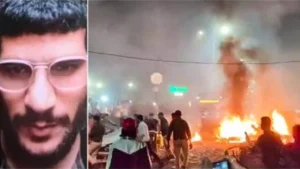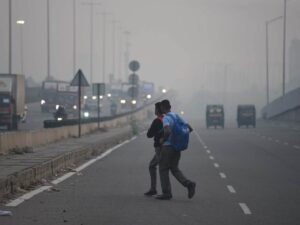Climate change is not just about rising temperatures or melting ice — it also affects our minds and emotions. Many people, especially young adults and Gen Z, feel climate anxiety. This means they worry deeply about the future of the planet and the environment. This blog explores what climate anxiety is, why it happens, and how it impacts mental health.
What is Climate Anxiety?
Climate anxiety is a feeling of fear, stress, or sadness caused by concerns about environmental problems like pollution, natural disasters, and global warming. It is a real psychological effect that is growing as climate change worsens.

Why Are Young People More Affected?
Young adults and teenagers often feel climate anxiety more strongly because they will live through the worst effects of environmental collapse. Many feel helpless or frustrated as they see slow action from governments and industries. Social media also spreads news and images of climate disasters, increasing worry and fear.
How Climate Change Affects Mental Health
People with climate anxiety may experience symptoms like trouble sleeping, feeling hopeless, or constant fear. It can lead to depression, stress, and reduced ability to focus on daily tasks. In some cases, climate anxiety may cause people to avoid thinking about the future, which can impact their life choices.
What Can Be Done?
Talking openly about climate anxiety helps. Joining community groups, taking part in environmental actions, and focusing on small, positive changes can empower people. Mental health professionals are also learning how to support those affected by climate stress.
Why It Matters
Understanding climate anxiety is important because mental health is part of overall well-being. As climate change affects more people, recognizing these feelings helps society respond better — with care, support, and action to protect the planet and its people.
Also Read :
FAQs
1. What is climate anxiety?
It is fear and worry caused by concerns about climate change and environmental damage.
2. Who is most affected by climate anxiety?
Young adults and Gen Z are often more affected due to their future stake in the planet.
3. What are common signs of climate anxiety?
Trouble sleeping, hopelessness, stress, and fear about the future.
4. How can people cope with climate anxiety?
By talking, joining groups, taking action, and seeking professional help if needed.
5. Why is addressing climate anxiety important?
Because mental health affects overall well-being and motivates positive environmental action.













More Stories
Mogambo, Crime, and Comedy: The Era of Iconic Villains & Sidekicks
The Rise of the Khans: How the 90s Built Bollywood’s Biggest Superstars
A nostalgic look at the unforgettable soundtracks of the 90s — from Nadeem-Shravan to A.R. Rahman.